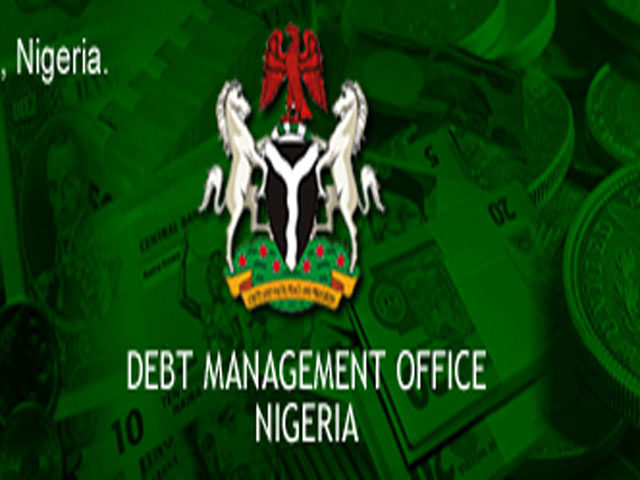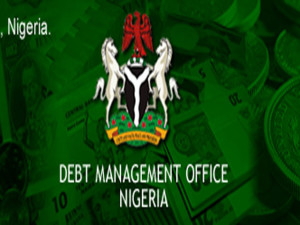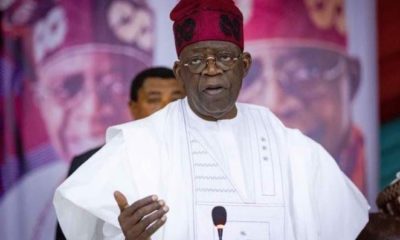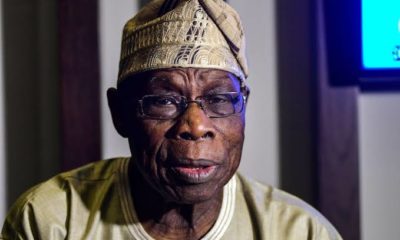Finance
Debt: DMO template excites African Countries

…Uganda, Sudan, others visit Nigeria
By Amarachi Eshiogu
ABUJA-IN its nearly two decades of existence, Nigeria’s Debt management Office, DMO, has not ceased to attract public interest in the discharge of its statutory duties.
Coming at a time when the country was battling with stifling foreign and local debt, it was natural that the attention of the world was glued to the DMO from its inception in 2000. Such interest has remarkably remained till date. Primarily established to centrally coordinate the country’s debt, which was earlier handled by various agencies, without positive result, the DMO, has been on the track of ensuring good debt management practices that make positive impact on economic growth and national development, particularly in reducing debt stock and cost of public debt servicing in a manner that saves resources for investment in poverty reduction programs.
Primarily established to centrally coordinate the country’s debt, which was earlier handled by various agencies, without positive result, the DMO, has been on the track of ensuring good debt management practices that make positive impact on economic growth and national development, particularly in reducing debt stock and cost of public debt servicing in a manner that saves resources for investment in poverty reduction programs.
Like during the administration of former President Olusegun Obasanjo when the DMO in partnership with the finance ministry, facilitated the debt relief Nigeria got from creditor nations, the agency is at it again with the proposal to restructure the debt owed by state governments.
The aim is to extend the life span of such loans while reducing their debt-servicing expenditures. This policy action which now left Nigeria’s insolvent states with enough resources that would have been removed from their accounts by
the banks they are indebted to, has attracted divergent positions from financial experts.
While some applauded the initiative, others simply gave it knocks. Those in support of the move, believes it is the best option available, given the near insolvent state of the nation’s economy.
The argument of the antagonists is that the DMO debt relief would further entrench corruption in the system. They argued that while it is true that the national economy is experiencing a downward trend, most of the states actually compounded the situation through unbridled financial recklessness. Bailing them out would, therefore, amount to
promoting and commending their perceived corrupt tendencies.
But other industry players are quick to discountenance the opinions of the antagonists as probably ill-informed of the workings of the DMO in this regards. They agree that States have been extremely reckless over the years in both spending and borrowing; particularly in the areas refusing to see how to improve Internally Generated Revenue(IGR), they are however quick to add that the DMO should be greatly commended for instilling fiscal discipline amongst the states by way of establishing Debt Offices in all the 36 States of the Federation.
Dr. Anthony Olawale, an Economist said that “the establishment State Debt Management Departments (DMD) have built a very robust and effective tools for states to know their state stock, which hitherto were not known to most of the states”.
“As you know, the DMO conducts debt sustainability analysis at the central level. Now that states have adequate capacity for public debt management having established their DMDs,” he concluded.
Nonetheless, the success of debt package and other interventionist programmes, informed the recent study visit by the Financial Markets Department in the Bank of Uganda in June, 2015.
The aim was to understudy the workings of Nigerian government securities markets as well as have an in-depth understanding and practical workings of the OTC Market for FGN Bonds.
Though, the DMO had in 2005 received requests from Uganda, Sudan, Zambia and Zimbabwe for their Debt Management Offices, Central Bank and National Planning to learn from Nigeria’s experience in public
debt management, the latest visit attested to the widely held belief that the DMO is becoming a model in Africa.
It was gathered that Uganda had twice visited Nigeria for same reasons, which had impacted efficiently on the economy of the East African country.
The first, it was learnt, was in November 2006 when a delegation came to learn from the DMO model as a basis for institutional arrangement.
Towing same line, a delegation from Sudan also came on a study tour to Nigeria on two occasions. Disclosing this, the President of Heritage Savings, Mr. Adegboye Ikiola, who has a deep knowledge of the workings of DMO, said: ’The first delegation came in December 12-16, 2005. Similarly, another delegation from the External Debt Management Unit in the Central Bank of Sudan and Domestic Debt Unit in the Ministry of Finance of Sudan, visited the DMO for a month secondment programme from Monday, June 23 – Tuesday July 15, 2014.
The core objectives of both visits by the Sudanese teams were to learn from the Nigeria’s debt relief and restructuring phases as well as Nigeria’s debt management experiences prior to the establishment of the DMO.’’ Another instance, he said, was a visit by: “A delegation from the Ministry of Finance and National Planning of the Republic of Zambia
undertook a one-week study tour of the Debt Management Office, Nigeria, from 20th – 24th September, 2009. The purpose of the study tour was to enable the Zambians learn how the Debt Management Office, Nigeria is structured, the functions of the Office and how it carries out its responsibilities of managing the country’s public debt and
issuance of the FGN Bonds.’’
‘’I can continue with the examples, because we have to understand what the DMO is doing at this time. A seven-man team from the Zimbabwe Aid & Debt Management Office (ZADMO) in the Ministry of Finance of Zimbabwe visited the DMO for a week study tour from July 17 to 27, 2011 to understudy the processes of establishing and running an
effective debt management office in its efforts to set up a centre of excellence in debt management in Zimbabwe.’’
Another industry expert, Chief Gabriel Nwonuma noted that the DMO has been outstanding on debt management, calling for the sustainability in service delivery.
“Governance is a continuum; the DMO should sustain what it is doing considering the economic crisis in the country. I am happy that they have a very competent team that can sustain its service delivery framework.
DMO staff are frequently invited as resource persons to various training programmes workshops, seminars and conferences by international organizations including the United Nation and World bank’’.
Industry players are of the opinion that given the successes of the MO the Nigerian model should be extended to other African countries to emulate in order to strengthen their debt management profile.
They are as well quick to add that the Office should be encouraged to sustain the training and equipping of her staff for the challenges ahead, particularly in this period that our nation is facing some economic challenges.
Business
Nigeria pays US$4.9 billion on petrol subsidy in 2024- NNPCL
It was however noted by Biztellers.com.ng, that although subsidy is back in effect, the main reason for that is the increasingly weak state of the Naira and the country’s extreme dependence on products importation. Also unlike the previous subsidy era, where several oil marketers were getting free subsidy refunds for unverified product importation, this subsidy era is witnessing only one importer, the NNPCL, which in effect is the sole receiver of government subsidies.
Yemie ADEOYE
INSPITE of the official position of the Nigerian government that the controversial petrol subsidy is gone for good as announced by the President on assumption of office, the state owned Nigerian National Petroleum Corporation Limited, NNPCL has disclosed that petrol subsidy is still fully operational in Nigeria, although, under a different identity.
Umar Ajiya, Chief Financial Officer at the NNPCL, disclosed that it cost the company a staggering N7.8 trillion (US$4.9) to cover this price gap in the first seven months of 2024.
Rather than simply referring to these claims as subsidies, he stated that the company is merely managing the price difference in petrol imports on behalf of the federation, stressing that this should not be misconstrued as a return to subsidy payments.
![]() This revelation has reignited discussions on whether the NNPC is indirectly offering subsidies, a concept typically defined as selling a product below its cost price.
This revelation has reignited discussions on whether the NNPC is indirectly offering subsidies, a concept typically defined as selling a product below its cost price.
Documents reviewed by Biztellers.com.ng showed that the term “subsidy” was used extensively in official correspondence between the NNPCL and the presidency, particularly in reference to the “shortfall.”
Recall that President Bola Tinubu reportedly approved NNPC’s request to utilize the 2023 final dividends due to the federation to offset these costs.
However, during a media briefing on Monday about the company’s 2023 audited financial statements, Ajiya refuted claims that the NNPC is involved in any subsidy scheme.
Ajiya further disclosed that the Nigerian government owes the NNPC N7.8 trillion ($4.9 billion) in subsidy-related debts for the period from January to July 2024.
In furtherance of his clarification to the News Agency of Nigeria (NAN), Ajiya insisted that no subsidy payments have been made to any marketer in the last nine years, citing the NNPC’s role as the sole importer of petrol under supply contracts.
He said, “In the last eight to nine years, NNPC Ltd. has not paid anyone a dime as a subsidy; no kobo has been disbursed by NNPC Ltd. in the name of subsidy. No marketer has received any payment from us for subsidy.”
“What has been happening is that we have been importing PMS, which has been landing at a specific cost price, and the government tells us to sell it at half price. So the difference between the landing price and that half price is a shortfall.
“And the deal is between the Federation and NNPC Ltd., to reconcile, sometimes they give us money, so there is no money exchanging hands with any marketer in the name of subsidy.”
Ajiya remained silent on how much of the $4.9 billion could have been remitted to the federation account if the NNPC had not been covering the “shortfall.”
It was however noted by Biztellers.com.ng, that although subsidy is back in effect, the main reason for that is the increasingly weak state of the Naira and the country’s extreme dependence on products importation. Also unlike the previous subsidy era, where several oil marketers were getting free subsidy refunds for unverified product importation, this subsidy era is witnessing only one importer, the NNPCL, which in effect is the sole receiver of government subsidies.
Banking
CBN Denies Currency Devaluation

The Central Bank of Nigeria (CBN) has refuted claims of devaluing the.
Earlier reports suggested that the CBN had devalued the Naira, lowering its exchange rate from N631 to the dollar, compared to the previous day’s rate of N461.60 at the Importers and Exporters (I&E) window.
However, the Central Bank of Nigeria (CBN) released a statement on Thursday through its Acting Head of Corporate Communications, Dr. Isa Abdulmumin, categorizing the report as false information.
In the statement titled ‘CBN Has Not Devalued The Naira’, he said the attention of the apex bank was drawn to the news report by an Abuja based newspaper edition of June 1, 2023, titled “CB Devalues Naira To 630/51”.
However, the CBN stated categorically that the news report was replete with outright FALSEHOODS and destabilizing innuendos, ‘reflecting potentially willful ignorance of the said medium as to the workings of the Nigerian Foreign Exchange Market.’
“For the avoidance of doubt, the exchange rate at the Investors’ & Exporters (I&E) window traded this morning (June 1, 2023) at N465/USS1 and has been stable around this rate for a while.
“The public is hereby advised to ignore the news report by Daily Trust in its entirety, as it is speculative and calculated at causing panic in the market,” the CBN spokesman added.
He, therefore, advised media practitioners to verify their facts from the Central Bank of Nigeria before publishing in order not to misinform the public.
Banking
BREAKING: CBN Increases Interest Rate By 0.5%

The interest rate in Nigeria has been raised to 18.5 percent, up by 0.5 percent, from 18 percent where it was pegged in March 2023.
The Central Banks of Nigeria’s (CBN) Monetary Policy Committee (MPC) resolved to this effect at its third meeting of 2023 in Abuja, on Wednesday.
Governor, CBN, Godwin Emefiele, made the disclosure in the communiqué of the MPC’s meeting, thereafter.
While engaging the media at the end of the two-day meeting, Emefiele, said the committee voted to keep the asymmetric corridor at +100 and -700 basis points around the MPR.
In the view of the MPC, rising inflation rate is traceable to the high energy cost and challenges around the supply chain, among others, which lie outside the corridors of the CBN.
Emefiele said, “The current trend in price development would continue to be monitored by the bank with greater collaboration with fiscal authority to address the drivers of inflation.”
Biztellers reports that the CBN had effected six consecutive interest rate increases, which has seen the rate move from 11.5 percent in March 2022 to 18.5 percent in May 2023.





















